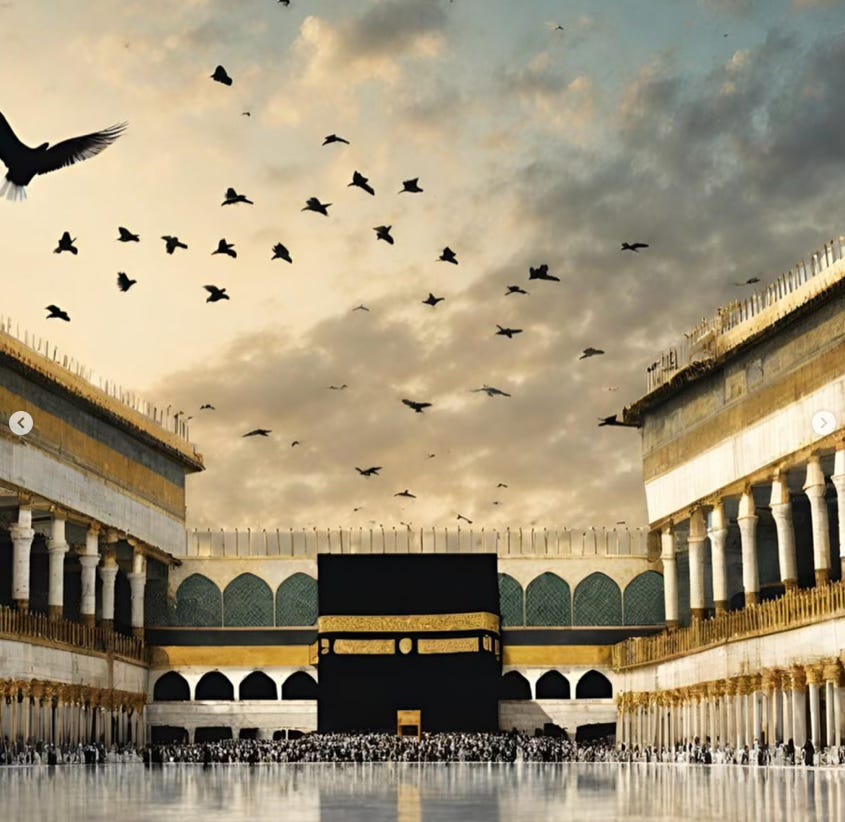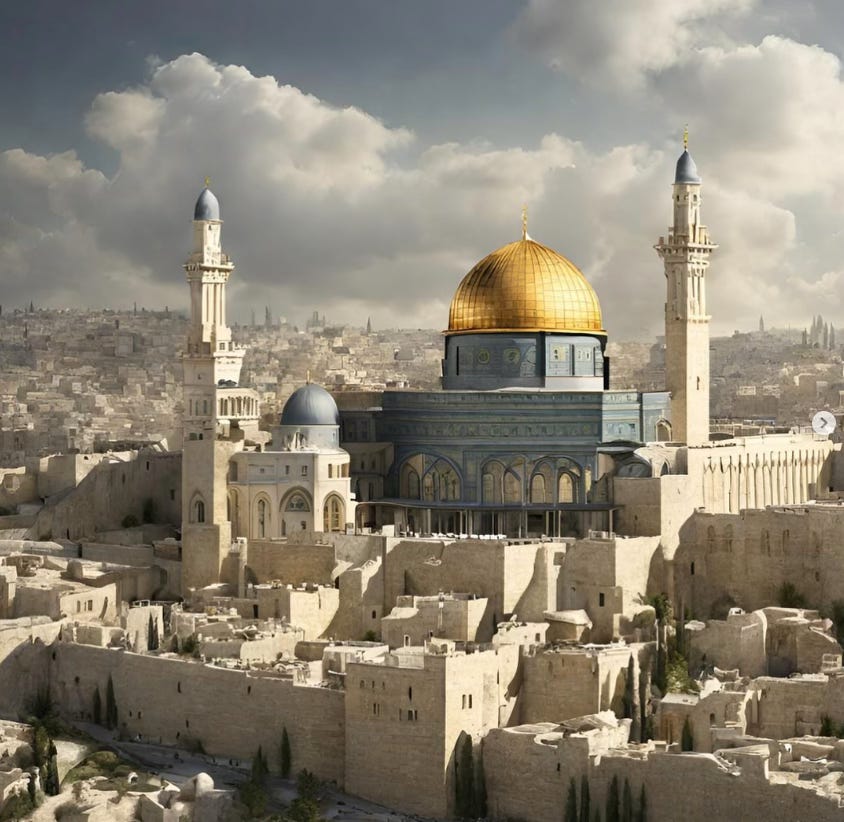Planting Seeds on the Day of Judgement: Palestine in our Purview
A few weeks ago, I announced a weekly newsletter. But Gaza has been at the forefront of my mind and heart these last few weeks...
Peace be upon you, dear reader.
There are many topics and projects that I want to share with you all, but I cannot. My heart is too heavy.
Many of you saw the horrific images of 19-year-old Shaban Ahmed burning to death. We have seen the Lebanese people getting bombed. We have seen the Syrian people get slaughtered for so many years. What horrible dystopia are we living through? How are we being made to simply watch and do nothing? As I was recently discussing with a friend, it is at times like these I am grateful to believe in God and in a day of judgement, where oppressors will be brought to justice, God-willing.
But until then, I have been wondering, how can I lighten the burden I am feeling? What can I do to serve the oppressed? More so recently than ever before in my life, I have been turning to the life of the Prophet and the Qur’ān for solace. When diplomacy and foreign policy are not yielding results, I find the truth of Islam’s scriptures to be a solace for myself.
That said, I want to share a post I wrote some time last year.
God’s work vs. our work
The Year of the Elephant (‘ām al-fīl) was marked by Abraha's incursion into Makka to destroy the Ka’ba. Abraha was an oppressor who wished for his religious monuments to be sanctified at the expense of the Ka’ba. Neither his intentions nor actions were pure. Upon entering the holy city of Makka, he seized the camels of ‘Abd al-Muttalib. He was the leader of Makka, as well as the grandfather of the Messenger, peace be upon him.
‘Abd al-Muttalib made his way to Abraha to retrieve his camels. Upon arrival, Abraha welcomed him and sat him down. Upon asking for his camels, ‘Abd al-Muttalib did not make mention of the Ka’ba. This astounded Abraha, as there was impending destruction about to be unleashed on the holy site of these people, yet their leader said nothing in this regard. When Abraha questioned him about this, the only response ‘Abd al-Muttalib gave was “I am the lord of these camels, while this house has a Lord—and He will take care of it.”
Like myself, there are so many of us who have been to Palestine and seen the oppression enacted on the indigenous Palestinian people there, first hand. We have Palestinian friends and family whose stories of unjust displacement go back one hundred years. Palestinians are some of the most resilient people I have met. It is witnessing the morale of these people I have hope.
Hope that will likely lead to change long after I leave this world.
Regardless of how horrendous reality seems for our brothers and sisters in Gaza and around the Levant, our faith teaches us that justice prevails in the end. Maybe not right away, but eventually it arrives. As difficult as it is, we must continue to be optimistic and work towards a better future, even if it may seem bleak.
Hence, in retrospect, the Prophet taught us that even if the day of judgment is beginning and you’re planting a tree, continue to plant that tree. You do your job, and let God do His job.
Anas ibn Malik reported: The Messenger of Allah, peace and blessings be upon him, said, “Even if the Day of Judgement was upon one of you while he has a seed in his hand, let him plant it.”
Source: Musnad Aḥmad 12902
عَنْ أَنَسِ بْنِ مَالِكٍ قَالَ قَالَ رَسُولُ اللَّهِ صَلَّى اللَّهُ عَلَيْهِ وَسَلَّمَ إِنْ قَامَتْ عَلَى أَحَدِكُمْ الْقِيَامَةُ وَفِي يَدِهِ فَسْلَةٌ فَلْيَغْرِسْهَا
12902 مسند أحمد بن حنبل
20/251 المحدث شعيب الأرناؤوط خلاصة حكم المحدثإسناده صحيح على شرط مسلم في تخريج المسند






